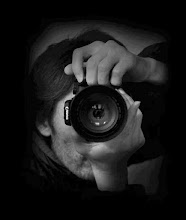 I do hope, in my remaining lifetime, I won't be able to witness more horrific events than September 11, 2001.
I do hope, in my remaining lifetime, I won't be able to witness more horrific events than September 11, 2001.It's a declaration of war on our civilisation by Islamic Jihadists.
The war that can't be lost by anyone who believe in secular, democratic society, and its political, judicial due process.
This documentary is a heart-wrenching account on that beautiful autumn day in America.
It's really unbearable to listen to recordings of phone calls made by victims trapped in Twin Towers.
I don't know what to say here.
So, I thought......
The following is from an interview of Christopher Hitchens by Tony Jones during LateLine.
TONY JONES: So let’s talk briefly about that day September 11, 2001.
CHRISTOPHER HITCHENS: Yes.
TONY JONES: You described it very tellingly soon afterwards, if not on the day, as it being as if Charles Manson had been made God for a day.
CHRISTOPHER HITCHENS: Mmm. Yes, I remember thinking that as I watched this huge cloud of filth emerge from the wreckage, as the towers sank, up came this sort of billowing cloud of ordure and wreckage and including the shredded remains of about 3,000 of my fellow creatures.
This is a really evil looking cloud. There was shot from a helicopter above Manhattan showing it sort of spreading on this really beautiful day all across the southern tip of my favourite island. And I thought “it’s as if Charles Manson is giving orders today, yes”.
TONY JONES: The other…
CHRISTOPHER HITCHENS: That’s how it felt. I think about it every day, still.
TONY JONES: Take yourself back then to watching it. Because one of the most horrific images – and I think you actually described this as one of the most horrific images that still remains in your head that you have ever seen and that is, the burning people falling or jumping, in fact, from the towers before they collapsed.
CHRISTOPHER HITCHENS: Yes.
Yes – hesitating between jumping to their deaths or being burnt alive and getting both – jumping while burning.
And a terrible little shrill cry that was overheard on the streets of Greenwich Village by a school teacher who was trying to escort some children along the sidewalk and one of them pointing and saying, “Look, teacher, the birds are on fire”.
A childish attempt to rationalise what was going on, make sense of it or, if you like – the wrong word but to humanise it.
That stayed in my mind as well. Still does.
TONY JONES: One of the more remarkable things that happened in the aftermath was the reaction of some on the Left – and I am sure this rather helped your – or helped galvanise the transformation that you were already undergoing – particularly from the reaction from people like Noam Chomsky.
Tell us a little bit about that.
CHRISTOPHER HITCHENS: Well, once I had sorted out my various impression of the day, which I had in common with everyone else – and which also included the realisation that a friend of mine had just been flown into the walls of the Pentagon.
I felt, with that additional horror, much as everyone else did, to discover, work through shock, rage, fear – not so much, oddly enough. I didn’t feel I was frightened by it but I was very powerfully shaken by it.
And then – I wasn’t sure whether to trust myself with this but I actually have to admit it – a sort of sense of exhilaration coming from, “Okay, it’s everything I hate versus everything I love”.
It’s a summons of a sort. It’s “Okay, now if you don’t recognise this as a crisis, when would you recognise one?”
And then very soon succeeded by the realisation – I then had been working for The Nation magazine as columnist for the flagship journal of the American Left for upwards of two decades – immediately realising I wasn’t going to like what a lot of my comrades were going to say.
And I remember thinking of Noam Chomsky, Michael Moore, Howard Zinn, and a few others. They would find a way of explaining this away.
And that I wasn’t in the mood for it. And I don’t just mean mood for that moment. It wasn’t a temporary sort of eruption of my digestive system or anything.
I wasn’t prepared to tolerate that.




No comments:
Post a Comment